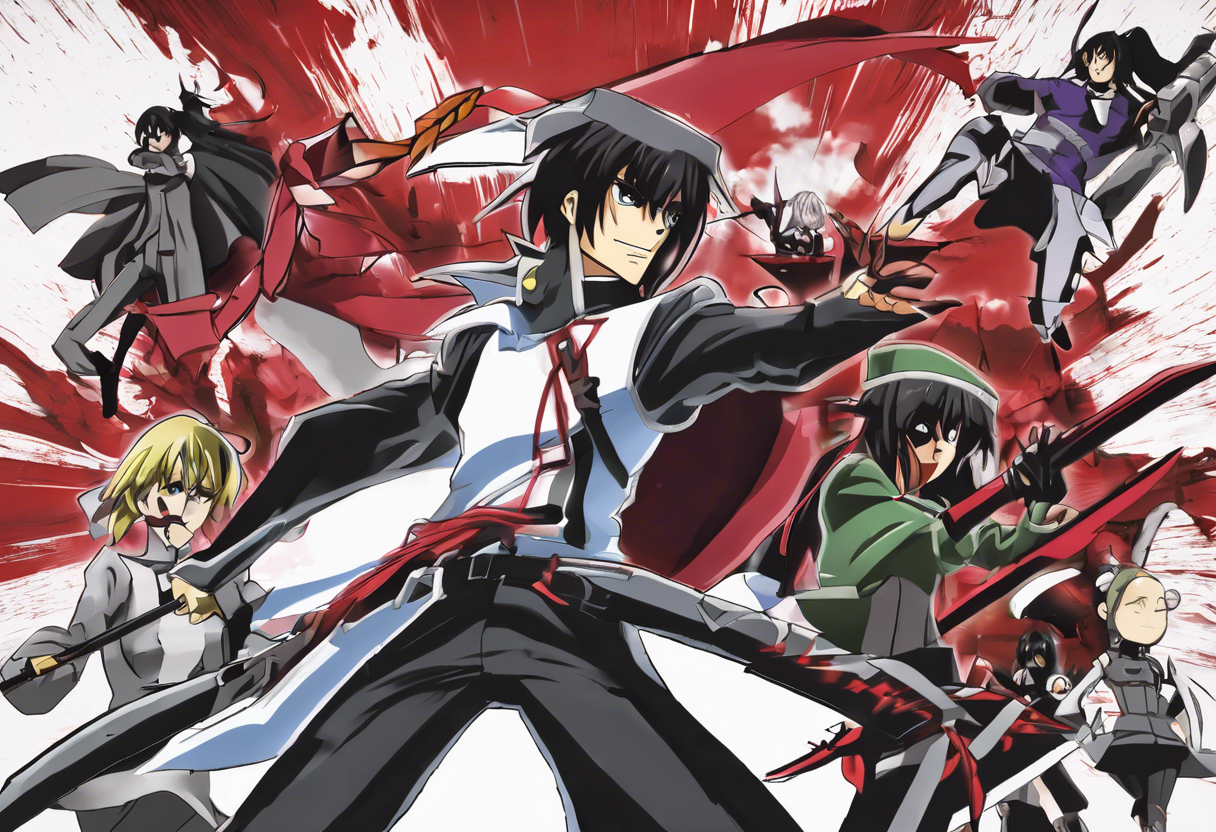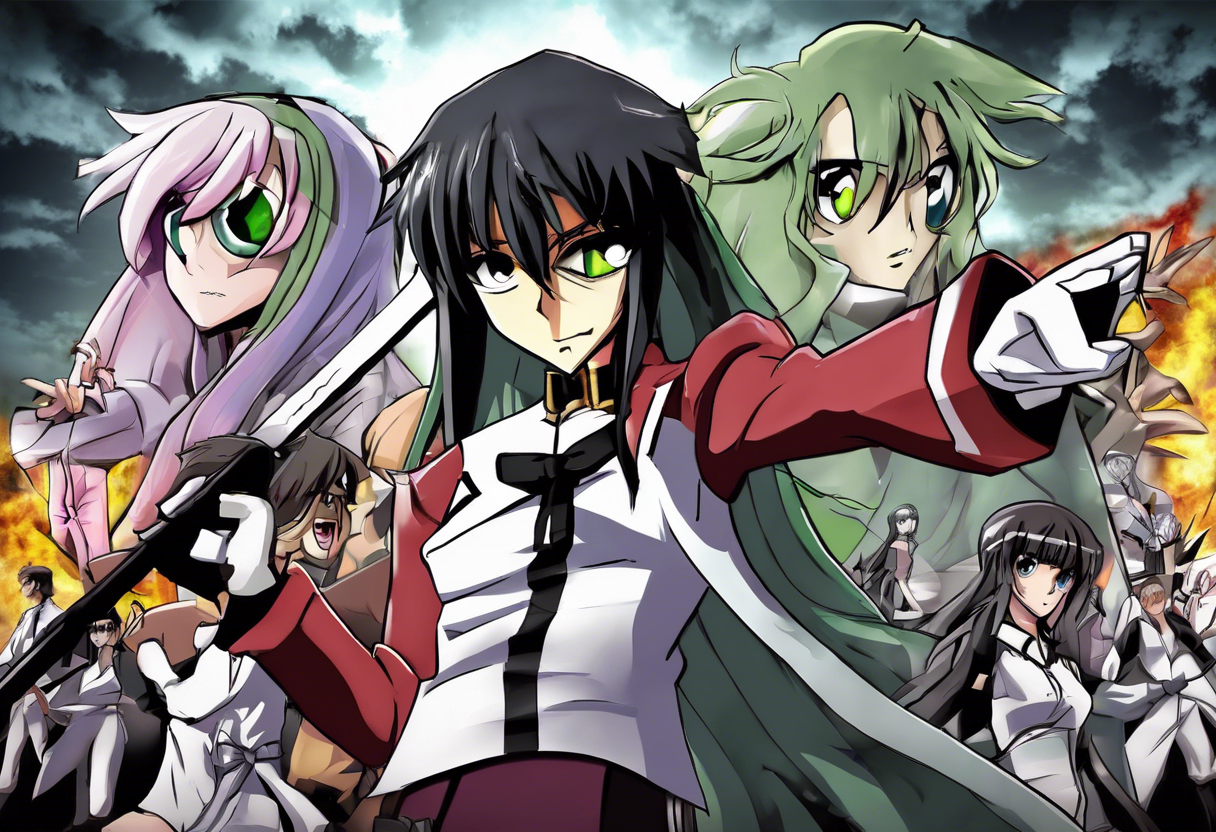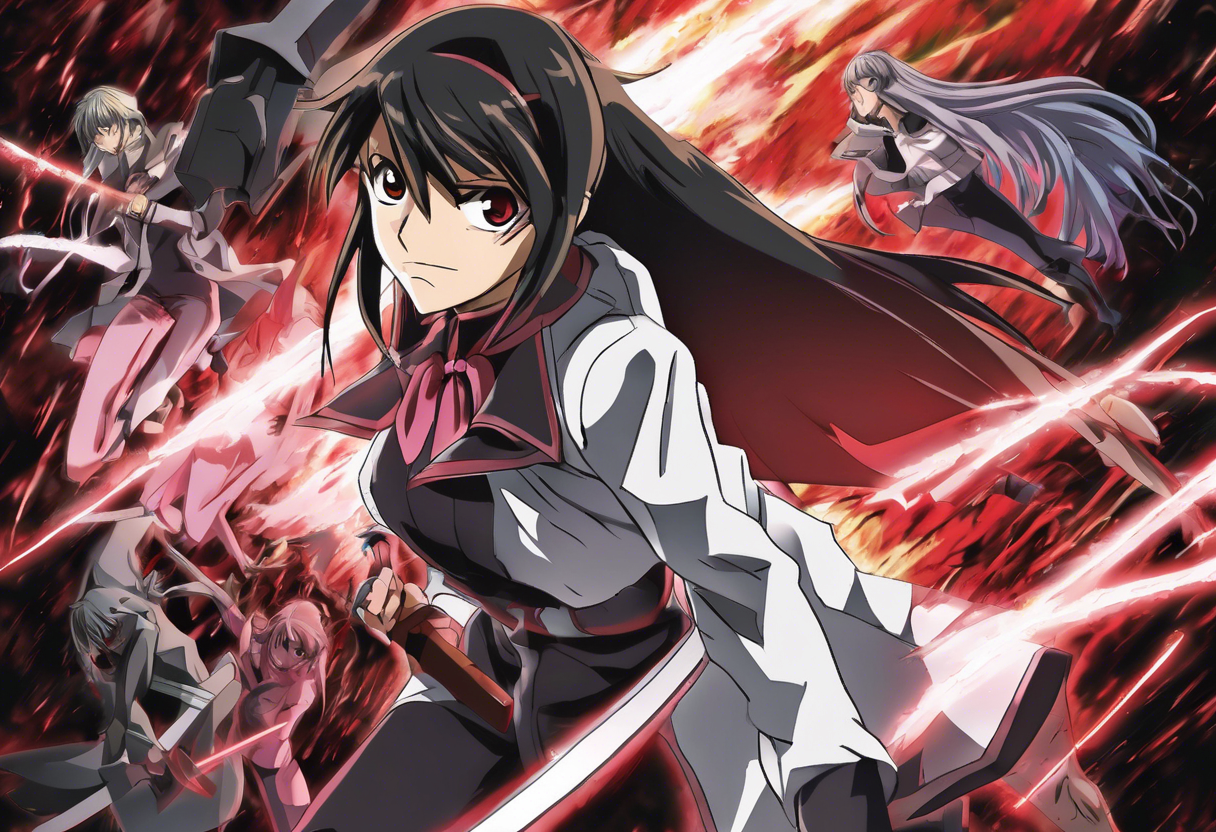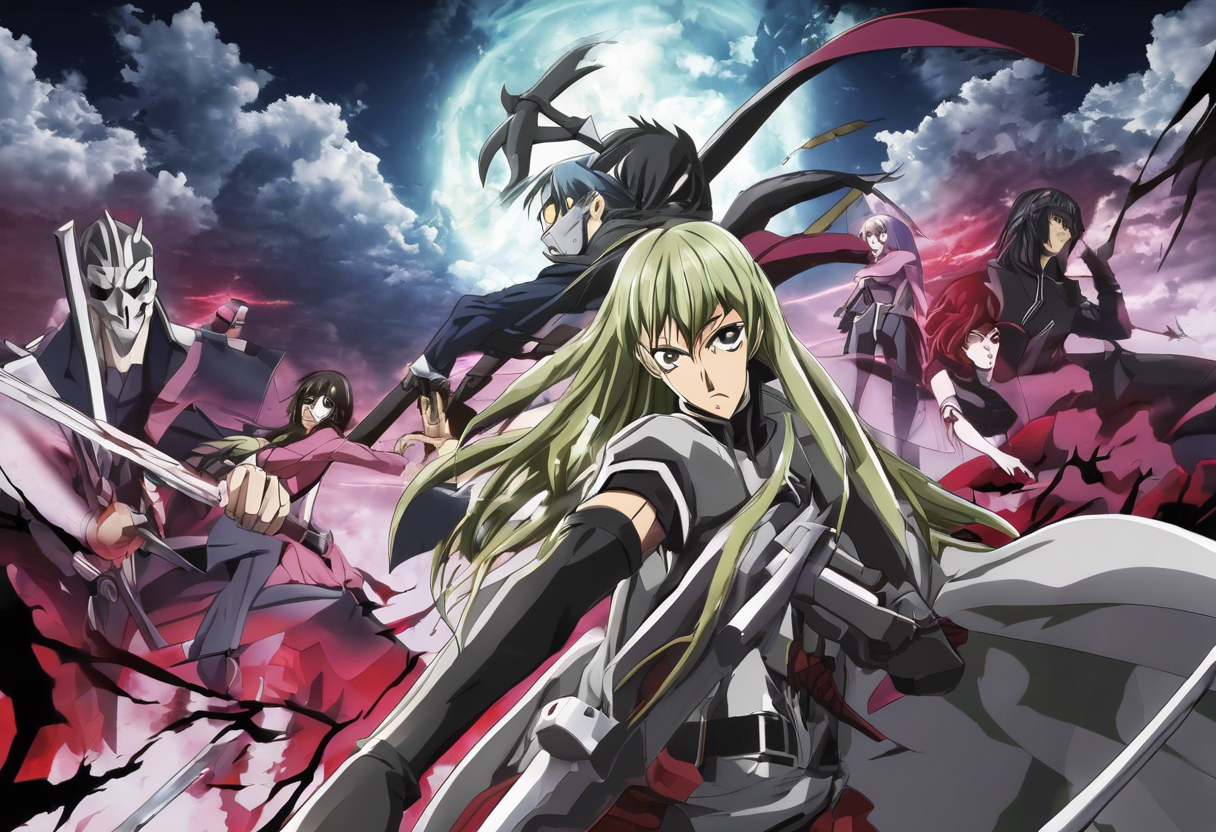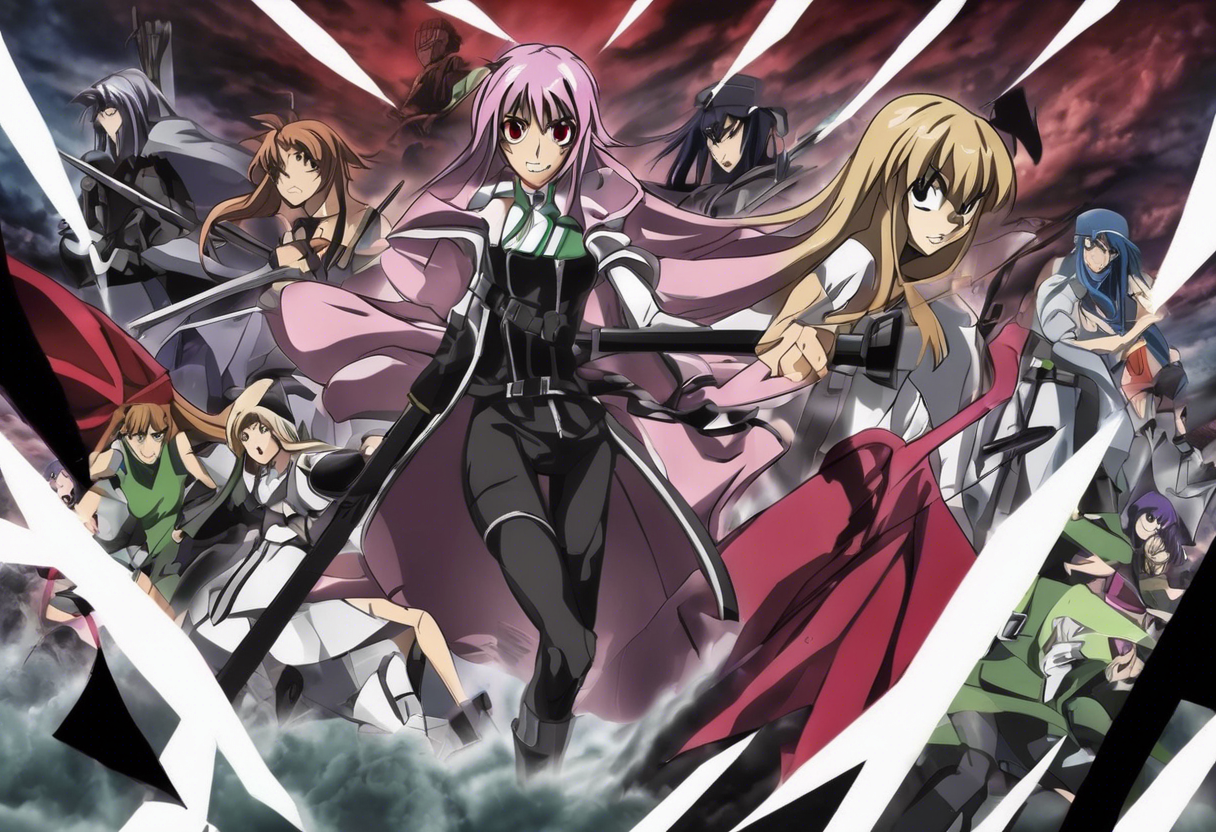Contents
Introduction
Akame ga Kill Episode 23, titled "Kill the Emperor," is a pivotal installment in the anime series adapted from the manga of the same name by Takahiro and Tetsuya Tashiro. This episode, directed by Tomoki Kobayashi and written by Makoto Uezu, marks a significant turning point in the narrative, intensifying the conflict between the revolutionary group Night Raid and the corrupt Empire.
Produced by White Fox and C-Station, "Akame ga Kill!" premiered in 2014 and quickly gained attention for its dark fantasy setting, complex characters, and intense action sequences. Episode 23, in particular, stands out for its dramatic plot twists, character developments, and the escalation of the central conflict.
Plot Summary
The episode begins with the Emperor, under the manipulation of Minister Honest, blaming Night Raid for the chaos in the kingdom. This sets the stage for a confrontation that will have far-reaching consequences. Tatsumi, determined to expose Honest’s deceit, attempts to reason with the Emperor, but his efforts are met with resistance.
Meanwhile, Akame engages in a fierce battle against the Emperor’s guards, showcasing her exceptional combat skills and unwavering dedication to Night Raid’s cause. As the fight intensifies, Tatsumi finds himself facing off against Makoto, a member of the Jaegers, while also trying to protect innocent civilians caught in the crossfire. In a poignant moment, Tatsumi saves a mother and her child, highlighting his compassionate nature amidst the chaos.
The Emperor, feeling threatened by Night Raid’s actions, summons a giant robot to quell the rebellion. This mechanical monstrosity wreaks havoc on the city, causing widespread destruction and loss of life. Tatsumi, undeterred by the odds, decides to confront the robot, recalling words of wisdom from Susanoo about finding the weak spot in every enemy.
As Tatsumi battles the robot, he is aided unexpectedly by Wave, who has switched sides after realizing the Empire’s true nature. This alliance is crucial in the fight against the Emperor’s forces and symbolizes the growing divide within the Empire’s ranks. Leone and Run, who had been fighting each other, temporarily cease their conflict, reflecting the broader theme of alliances and betrayals that permeate the episode.
Minister Honest continues to manipulate the Emperor, using his cunning and influence to maintain control. However, his actions become increasingly erratic, as evidenced by his bizarre behavior, such as burping mid-sentence, which adds a layer of unpredictability to his character.
The battle between Tatsumi and the robot is intense and emotionally charged, with Tatsumi determined to stop the destruction and convince the Emperor of his mistakes. Despite the odds, Tatsumi manages to find the robot’s weak spot and disable it, but not before significant damage has been done to the city.
Throughout the episode, the settings shift between the Emperor’s office, the city streets, and the battlefield, each location highlighting different aspects of the conflict. The narrative arcs of various characters are also advanced, particularly Tatsumi, Akame, and Wave, whose actions and decisions drive the plot forward.
The central conflict of the episode revolves around the struggle for power and the moral dilemmas faced by the characters. The Emperor’s descent into madness and the manipulation by Minister Honest serve as a backdrop for the larger theme of corruption and rebellion. The episode culminates in a dramatic showdown that sets the stage for the final confrontations in the series.
Themes and Symbolism
Episode 23 of Akame ga Kill delves into several central themes that are pivotal to the series. One of the most prominent themes is the struggle between good and evil, as embodied by the conflict between Night Raid and the Empire. The episode highlights the moral ambiguities of war and the difficult choices characters must make to achieve their goals.
The character of Minister Honest serves as a symbol of corruption and manipulation, illustrating how power can be abused to control others. His influence over the Emperor and his erratic behavior underscore the dangers of unchecked power and the consequences of blind obedience.
The giant robot summoned by the Emperor symbolizes the destructive power of unchecked authority and the devastating consequences of war. Tatsumi’s determination to stop it, despite the odds, represents the resilience and courage of those fighting against oppression.
The alliances and betrayals that occur in this episode also reflect the theme of loyalty and trust. Wave’s decision to switch sides and aid Tatsumi shows that even in the midst of conflict, there can be moments of redemption and change.
Cultural Impact
Upon its release, "Akame ga Kill Episode 23: Kill the Emperor" received significant attention for its intense action sequences, dramatic plot twists, and emotional depth. The episode’s impact on popular culture is evident in its influence on other anime series and manga, particularly in the dark fantasy genre.
The episode has been referenced and parodied in various forms of media, highlighting its cultural significance. The series as a whole has inspired fan art, cosplay, and fan fiction, demonstrating its enduring popularity among fans.
Critical Reception
Critics and audiences praised Episode 23 for its intense action, compelling character developments, and the escalation of the central conflict. The episode’s dramatic plot twists and emotional moments were particularly highlighted, with many praising the series for its ability to balance action and drama effectively.
However, some critics noted that the pacing could be uneven at times, and the introduction of new characters and plot elements could feel rushed. Despite these criticisms, the episode was generally well-received for its contribution to the overall narrative arc of the series.
Legacy
"Akame ga Kill Episode 23: Kill the Emperor" continues to be a significant episode in the series, remembered for its dramatic turns and intense action sequences. The episode’s themes of rebellion, corruption, and the moral complexities of war continue to resonate with audiences.
The series as a whole has left a lasting impact on the anime genre, influencing subsequent dark fantasy series and manga. The characters and storylines introduced in this episode remain memorable, inspiring new generations of fans and creators alike.


